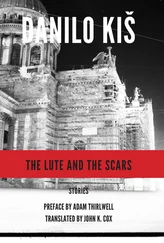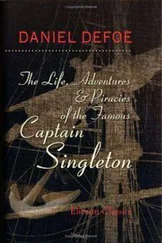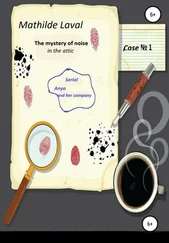Danilo Kiš - The Attic
Здесь есть возможность читать онлайн «Danilo Kiš - The Attic» весь текст электронной книги совершенно бесплатно (целиком полную версию без сокращений). В некоторых случаях можно слушать аудио, скачать через торрент в формате fb2 и присутствует краткое содержание. Год выпуска: 2012, Издательство: Dalkey Archive Press, Жанр: Современная проза, на английском языке. Описание произведения, (предисловие) а так же отзывы посетителей доступны на портале библиотеки ЛибКат.
- Название:The Attic
- Автор:
- Издательство:Dalkey Archive Press
- Жанр:
- Год:2012
- ISBN:нет данных
- Рейтинг книги:4 / 5. Голосов: 1
-
Избранное:Добавить в избранное
- Отзывы:
-
Ваша оценка:
- 80
- 1
- 2
- 3
- 4
- 5
The Attic: краткое содержание, описание и аннотация
Предлагаем к чтению аннотацию, описание, краткое содержание или предисловие (зависит от того, что написал сам автор книги «The Attic»). Если вы не нашли необходимую информацию о книге — напишите в комментариях, мы постараемся отыскать её.
Bildungsroman
The Attic — читать онлайн бесплатно полную книгу (весь текст) целиком
Ниже представлен текст книги, разбитый по страницам. Система сохранения места последней прочитанной страницы, позволяет с удобством читать онлайн бесплатно книгу «The Attic», без необходимости каждый раз заново искать на чём Вы остановились. Поставьте закладку, и сможете в любой момент перейти на страницу, на которой закончили чтение.
Интервал:
Закладка:
1. This word is derived from the word fabula ; Billy Wiseass uses it in this sense. (Author’s note.)
THE JOURNEY, OR THE CONVERSATION
The Bay of Dolphins (No date)
My dearest, my one and only. A light-year always passes between two of our embraces. You know how distrustful I am of love letters, and yet I must write to you. How can I give evidence of my love if you cannot see my eyes or behold my nights?
I would rather write to you about this place, about the people in the Bay of Dolphins. This region is odd, my dearest. If I weren’t bound to my attic by an unusual, sick passion, I would settle here. But of course, only if you wanted that too, only if you liked it here too. Here we could revel in lunar honey. . But who can think about that right now?
Today I went on a dolphin hunt with the natives. We boarded a little schooner they called Haramakana or Karamahana or something like that, and we waited for the moon to shine. Then we rowed, silently, reverentially, on the liquid gold, our boat festooned with wreaths of wild magnolia, so that we looked like a funeral procession or a wedding party. I don’t want to make you jealous and I won’t be describing their women. Although you have no reason to worry. They interpret my skin color as a sign of pallor and anemia, so they’re as sympathetic toward me as if I were a sick man.
They were all infinitely sad and formal, and I didn’t know what was really going on with them. When they very adroitly threw a dolphin into the boat, they cried, mutely, like we do in Europe for the dearly departed. There was no wild ritualistic dance of the type we might imagine taking place. There was dignified sniffling, sincere and proud, unimposing and quiet.
“You don’t need to lie,” said one native to me when I brought a handkerchief up to my mouth in a gesture of courtesy.
“I just want to blow my nose,” I responded.
“Then that’s another matter,” said Tam-Tam. “You white people lie a lot. You think it’s beautiful and decent to want to share someone else’s pains and joys, by hook or by crook. For us that is a sign of rudeness and bad upbringing. What reason, for example, could you have to cry right now?”
“Because of the dead dolphins. . Just like you, I might add,” I said, blowing my nose with the handkerchief to show that I was being considerate and not hypocritical.
“What ideas you have!” said Tam-Tam. “Crying on account of the dolphins! We are crying because we have to slap the moonlight with our oars.”
Their oars were barely touching the water.
The Bay of Dolphins, June
I do not know, my dearest, if I will ever be able to mail you these letters, but I’m writing them to you nonetheless. There’s no sort of postal system here, and nobody has heard of that civilized European aberration called “the letter” or “correspondence.” But I am writing to you because I consider the monologue to be a highly dishonest and selfish thing. I would kill myself the moment I realized that I was sufficient unto myself and that I could be satisfied with a monologue. But, if I succeed in mailing you these letters somehow, it means I’ll be depriving myself of the pleasure of letting you discover in my eyes the moonlight from the Bay of Dolphins.
Do you know how these savages profess their love?
When a boy is mature enough for tender intimacies — that is, when he has tried his hand at all the vices and gotten burnt out on orgies — he goes, on the day of the Pan-Dolphinian celebrations (a day that falls on the first of May, which is the seventh of January according to our calendar — when the moonlight is thickest and at its most resonant), to the girl who has come to him in his dreams more than seven times. Doing this, however, is considered — perhaps with justification — a great disgrace, or even a mortal sin, for a grown man. For us Europeans these are incomprehensible and amazing things. We would simply conceal the fact that we had dreamed of the same beloved seven times, or we would inform the parents of the girl that we were ready to wed their one and only (insofar, of course, as our material circumstances vouchsafed us the right to make such a proposal). In their society, though, telling anyone that a man has dreamed seven or more times of a woman is considered a mortal sin and a desecration of the sanctity of sleep (what I mean is that they believe that to use their meager language, which consists of only 300,000–400,000 words and an equal number of symbols, to make a fabulous description of the images and content of dreams amounts to an absurd and pretentious act of blasphemy); on the other hand, not admitting such a significant and fundamental fact is considered hypocrisy and an example of “Europeanness”; and then there’s the fact that they consider a man who is incapable of dreaming seven times of the same woman to be a simpleton and an idiot, and so they poke his eyes out to make sure he cannot see the moonlight on which they are dependent and to which they are connected by bonds of blood, as we in Europe are to the sun and to hypocrisy.
So this is how things work in the Bay. On the day when the moonshine is most resonant, the young man takes his chosen one by the hand and leads her up onto the Tanga Sihaka (Rock of Love). There, in the moonlight, he looks deeply into her eyes without speaking, for hours upon hours. Then, after this mute confession, after this mono-dialogue, he takes a sharp tahinj (a kind of curved dagger) from his waist and slices open the blood vessels on his left arm. The whole time he never takes his eyes off of her, so that she can follow the life being extinguished in his pupils, and his eyes turning white. Then, when she feels that she loves him too, she takes the knife and. .
“And if she doesn’t love him?” I asked of Tam-Tam.
“She’ll become enamored of him while he bleeds,” he said.
“But still. .”
“Then she allows him to die at her side. As soon as the sun goes down, she rips out his heart and tosses it to the dolphins. That’s why dolphins have a weakness for love.”
“Remarkable,” I commented. “Why is it done this way?”
Tam-Tam continued with a pedagogical air: “Because, after a night in which a man admits that his heart is not his own, his heart isn’t good for anything at all. If the woman to whom it was sacrificed will not take it, then it’s only fit to be thrown to the dolphins.”
“Cruel stuff,” I said, almost to myself, but he appeared to have understood me because he stated afterward: “We brook no compromises like you Europeans. I think that this is all honorable: who would be so insolent as to offer up the same heart a second time?”
“Wise Tam-Tam,” I said. “And what happens with those folks on the crag who have sliced open their arteries?”
“Nothing. They love each other.”
“I know,” I said. “They cut open their own arteries.”
“Holy Moonlight, are you ever naïve!”
“What do you mean, naïve?” I asked. “Did you or did you not say that they cut open their own veins?”
“Maybe I told you that, but who knows if they really do it. .”
Today, after the Pan-Dolphinian ceremonies and orgies, I asked Tam-Tam to help me translate the song that they sang yesterday evening to the accompaniment of tom-toms: the song that received the most votes in the competition at the choral festival. But before I get to that, I want to tell you how the selection and voting were carried out. After each number was announced, a singer came out to an improvised podium and sang his song. Then, when he had finished, the people present tore out hairs from their heads, as many as they wanted. These hairs were collected in a dish made of seashells and at the end they were counted by specially trained parrots that cried out the name of the winner. Tam-Tam had ripped out a whole handful of hair on account of this particular song, so this morning I could see a bald spot the size of an egg above his forehead.
Читать дальшеИнтервал:
Закладка:
Похожие книги на «The Attic»
Представляем Вашему вниманию похожие книги на «The Attic» списком для выбора. Мы отобрали схожую по названию и смыслу литературу в надежде предоставить читателям больше вариантов отыскать новые, интересные, ещё непрочитанные произведения.
Обсуждение, отзывы о книге «The Attic» и просто собственные мнения читателей. Оставьте ваши комментарии, напишите, что Вы думаете о произведении, его смысле или главных героях. Укажите что конкретно понравилось, а что нет, и почему Вы так считаете.












